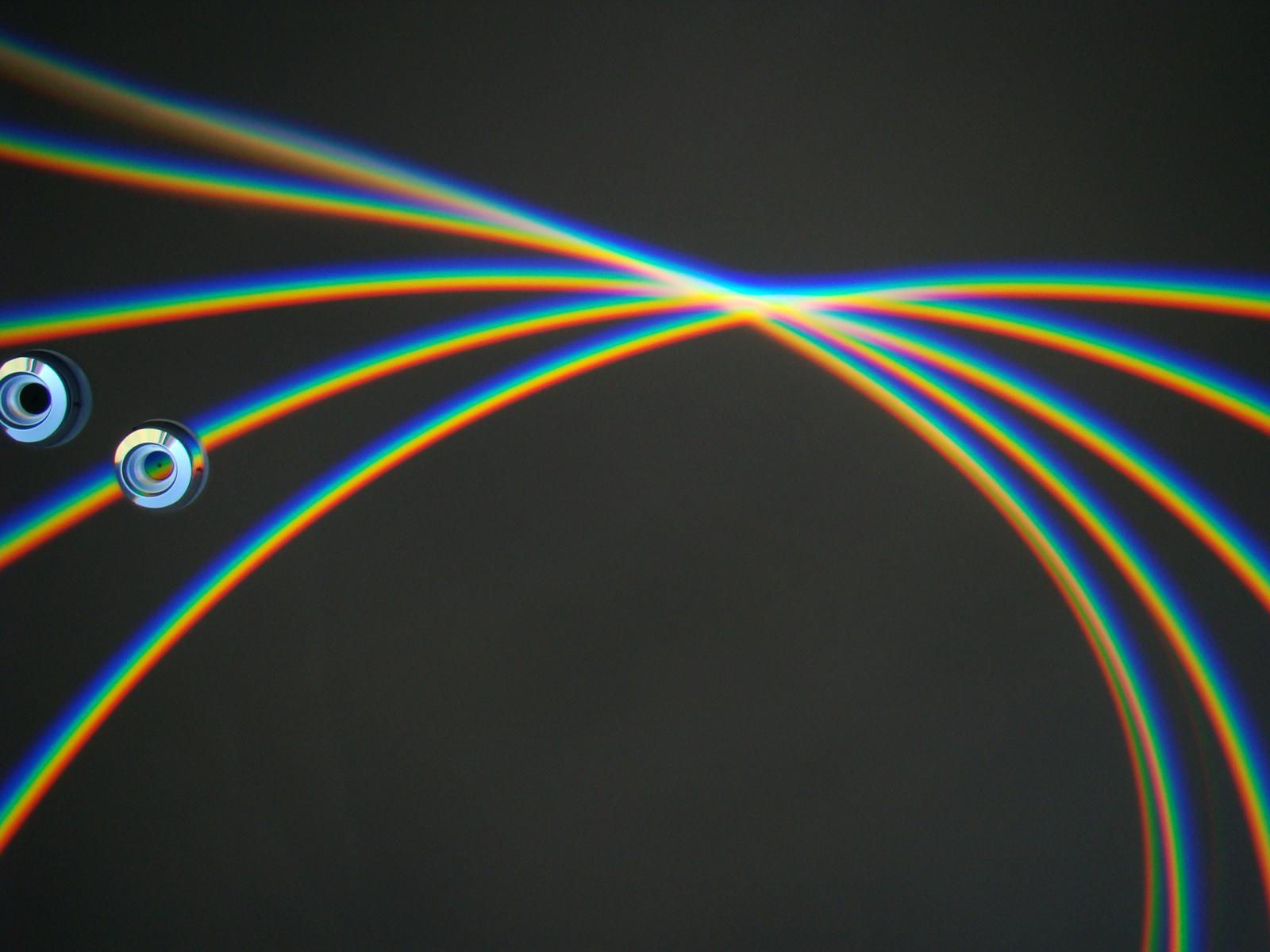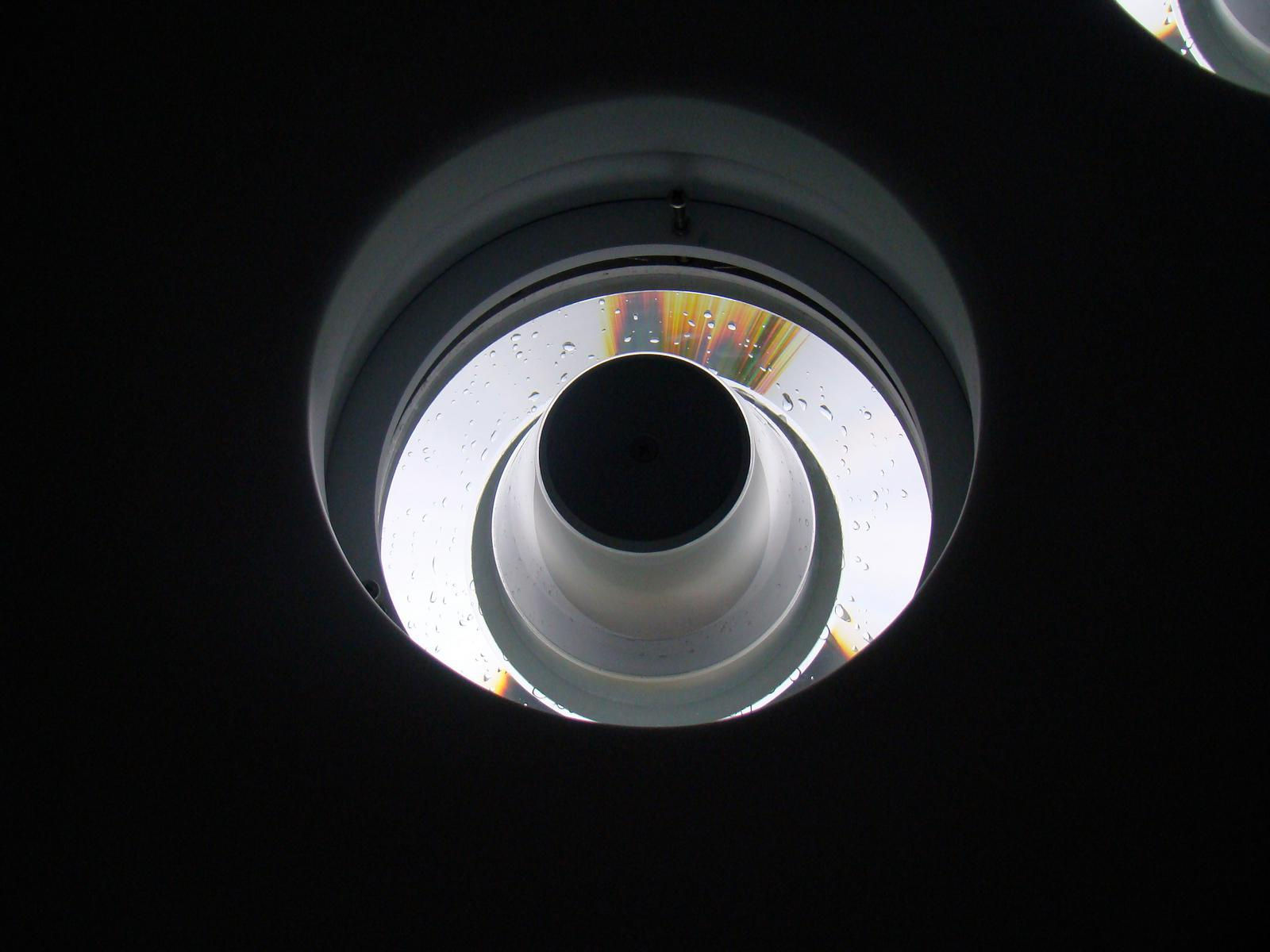Ólafur Eliasson: SUNSPACE FOR SHIBUKAWA : HARA MUSEUM ARC, JAPAN
Situated on the grounds of the Hara Museum ARC, in Shibukawa, Japan, Sunspace for Shibukawa is set against the backdrop of the museum building and the surrounding mountains. Reached via a path, the polished stainless-steel structure is an observatory designed to chart the path of the sun across the sky.
The design derives from extensive sun-path studies of the location undertaken by Studio Olafur Eliasson. Inside the work, a narrow antechamber leads into the inner space, which is large enough to admit a single viewer or a small group. On sunny days, visitors perceive arcs of light projected onto a curved surface opposite the entrance. The full colour spectrum is cast by one of thirteen prisms arranged according to the sun's path along the north–south axis of the work’s domed roof.
Approximately every second week, one of the prisms concentrates the rays of the sun into a perfectly circular rainbow. Because the work is constructed according to solar time, the exact dates of when the circular rainbows appear shift slightly from year to year but correspond to the days in the Japanese calendar known as sekki. Marking the changing of the seasons, these days include the solstices and equinoxes and divide the year into twenty-four equal parts. As the days lengthen, the circular rainbows appear later and later in the day. Sunspace for Shibukawa thus makes visible the progression of time and the motion of the earth around the sun.






